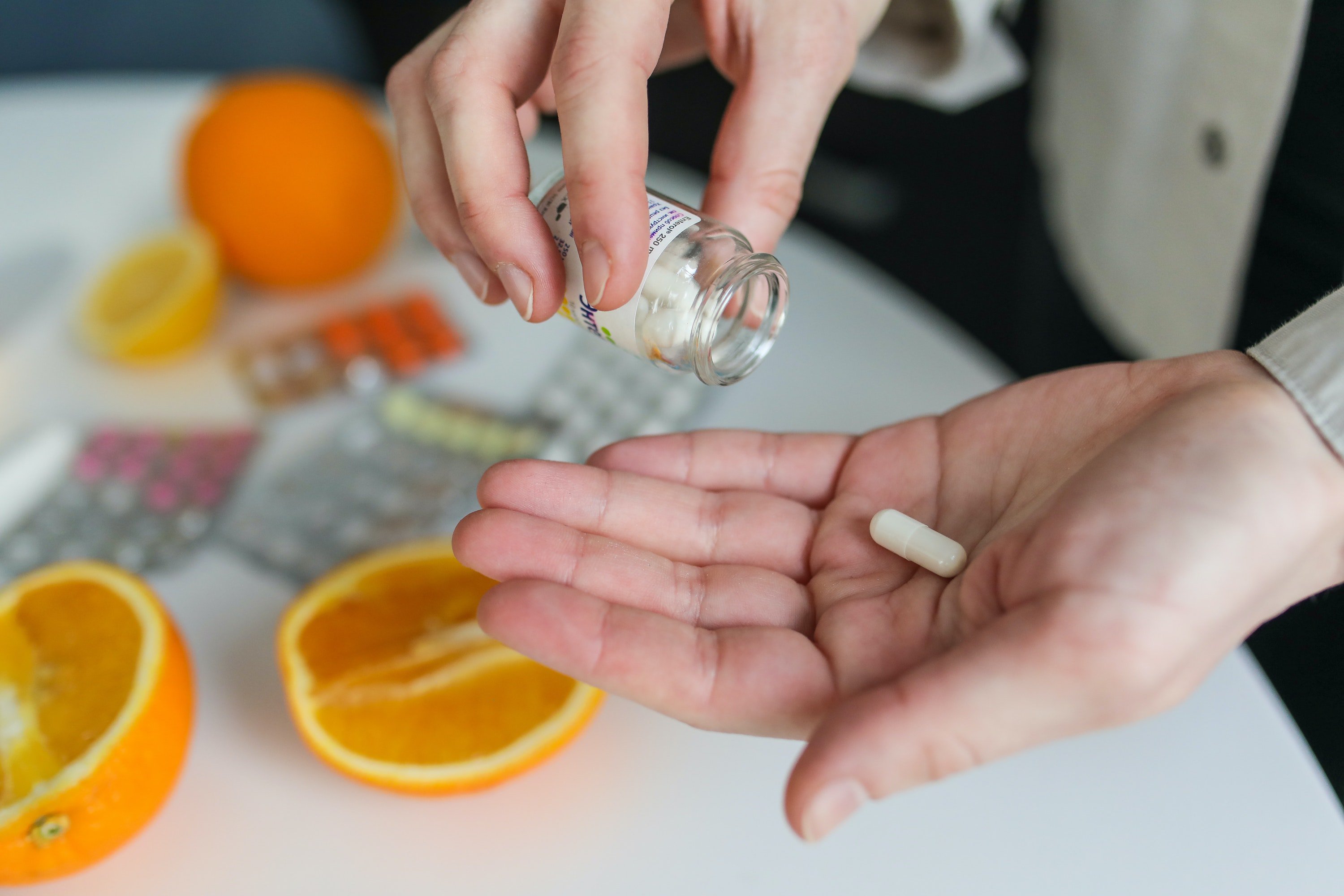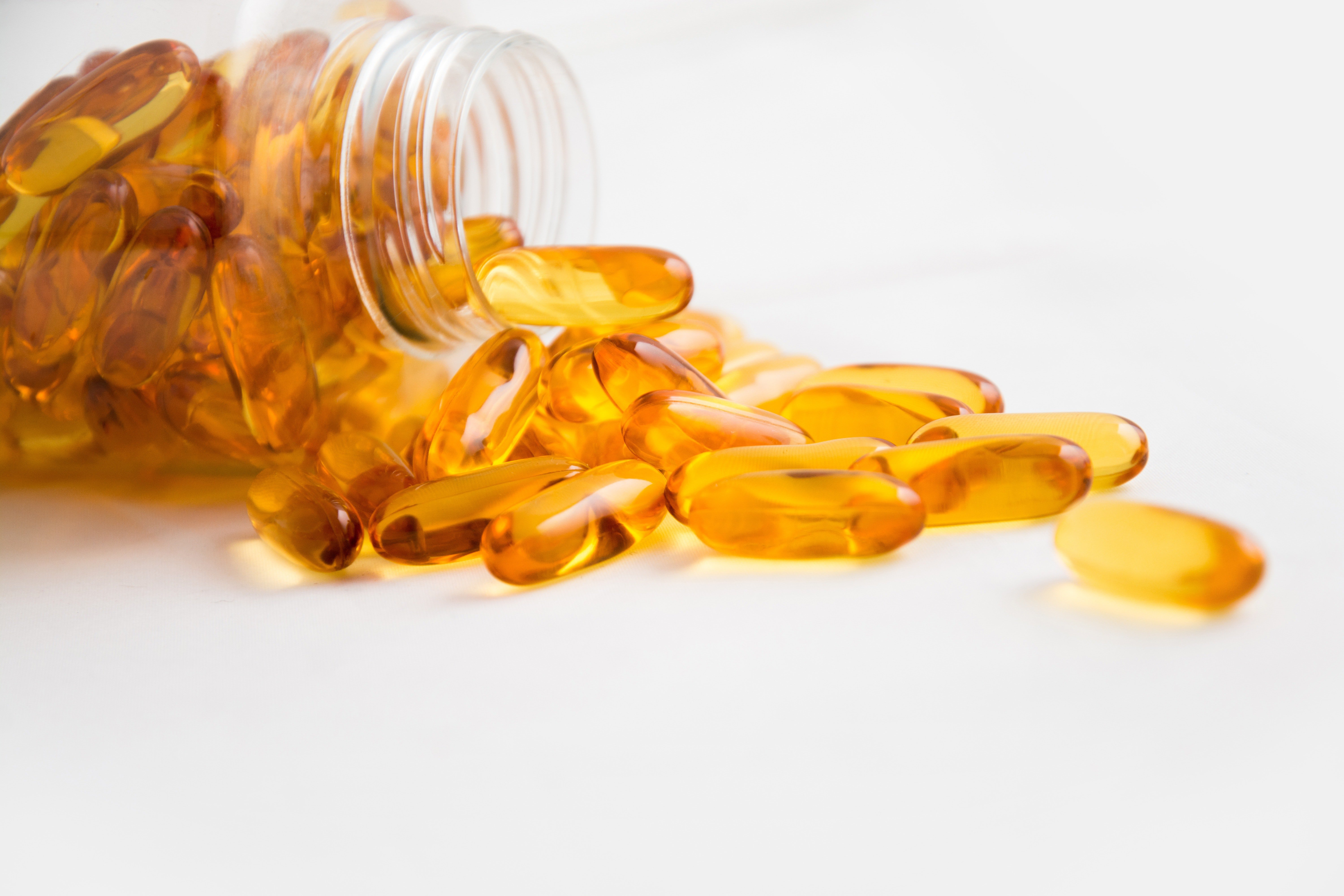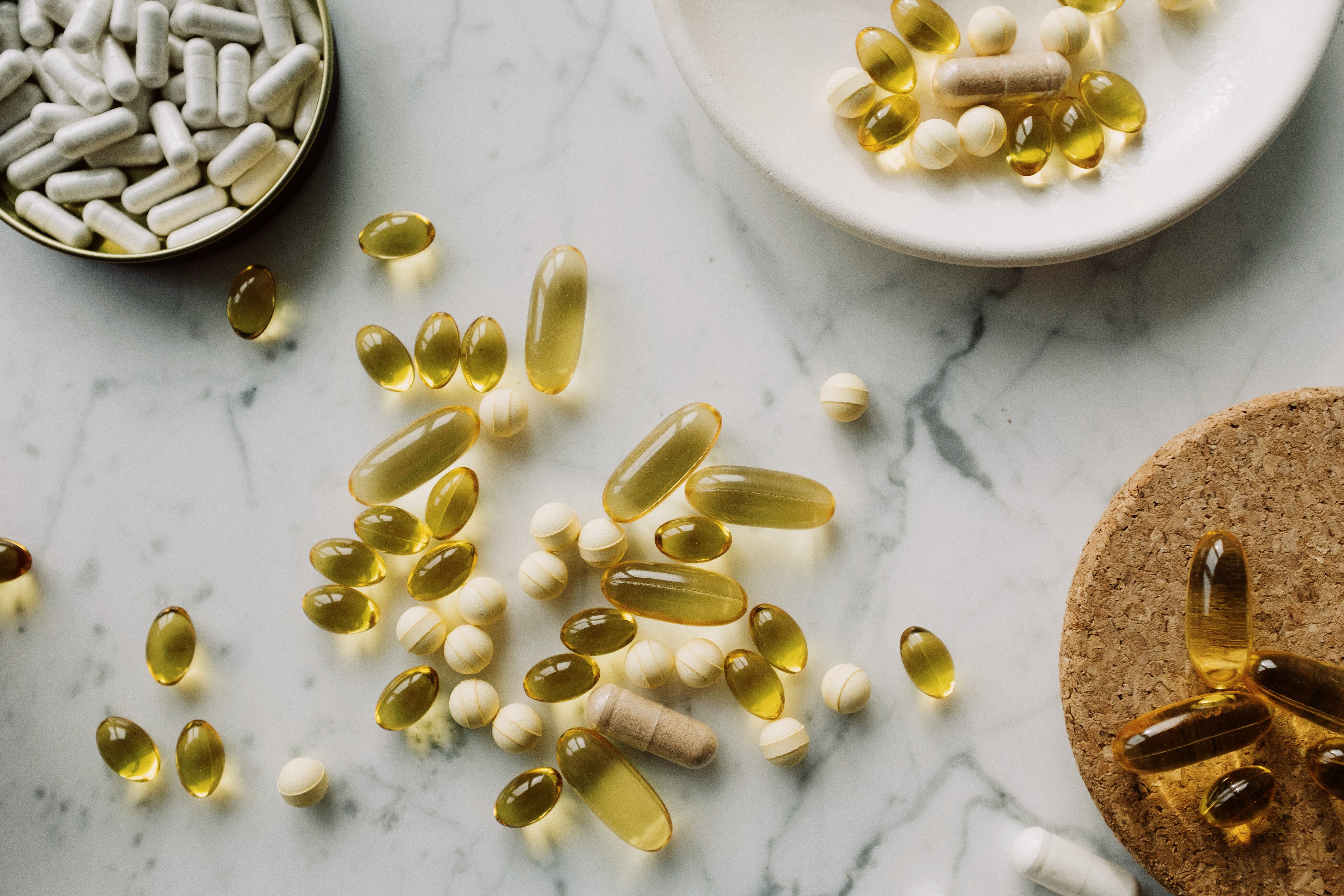What do I need to know about Natural Supplements as a Woman?
8 minuteRead

Why Should I Opt For Natural Supplements?
Often, we see people relying on sources other than their daily intake of food, in order to supplement their diets with some necessary and valuable micronutrients. These micronutrients are known to prevent the onset of some chronic diseases, curb deficiencies, and also build immunity. The food that we consume sometimes is not enough as it does not contain an adequate amount of said nutrients. This is why they turn to supplements.
Supplements can be of two types - synthetic or natural, which are also known as food-based supplements. The latter type comprises some carefully measured amounts of food concentrates that supply recommended levels of active nutrients which support optimal health. They also contain some bioactive ingredients like vitamins, minerals, probiotics, or antioxidants, depending on the specific type of supplements. They all are responsible for the provision of targeted nutrition to the required parts of the body.

Additionally, food-based supplements have been shown to be more potently bioavailable. Bioavailability is the property of a required nutrient to get absorbed into and travel through the bloodstream to a specific body part in order to have an active effect. These natural supplements go through a water removal process from different kinds of food items including fruit, nuts, seeds, herbs, and grains. They also contain additional elements such as enzymes and co-nutrients that aid the process of taking up the required supplements by the body.
Studies reveal that natural supplements that are derived from foods are actually healthier and much more effective in the long run. This is because of a property that is commonly known as food synergy - which means that certain bioactive compounds in a particular food item, like phytochemicals, combine and reach with each other as well as the micronutrients. This leads to their optimal absorption, in their most nutritious and enhanced version.
Synthetic versions of supplements usually don’t contain the enzymes and co-enzymes that are necessary for the micronutrients to be fully absorbed by the body.
Some research proves that eating avocados helps improve the efficiency of the absorption as well as utilisation of Vitamin A from its sources, such as carrots. Some smaller studies prove that the phytochemicals that are present in apples, when consumed, increase the availability of the antioxidants in the fruit.
Scientists have tried to establish a comparison between the two different types of vitamins, namely natural and synthetic. In their study, they took two different kinds of the same vitamin, that is vitamin MK7 and vitamin K1, which are respectively the naturally available and synthetic versions of vitamin K.
In order to carry out their study, they conducted an experiment where they made participants consume either version of these vitamins with either their meals during breakfast or dinner. This was carried out for over a period of four weeks. During this time, they also had to keep in mind to avoid the consumption of any other vitamin K rich foods (such as green leafy vegetables such as kale, collard greens, broccoli, spinach, cabbage, and lettuce), to successfully obtain desired results.

After the four week observation period got over, the examination of results revealed that even 20 mcg of the natural supplement (MK7) turned out to be a whole lot more effective than a larger dose (100 mcg) of its synthetic counterpart, the vitamin K1.
Here are a few foods that are known to provide nutrition for the long run. You may even consume them in the form of supplements!
- Liver
- Bee Pollen and Honey
- Fruits and nuts
- Seeds and grains
It is essential to keep in mind that consultation with your dietary professional before deciding to start a supplementary regimen is of utmost importance.
Supplements for Women
Throughout their lifetime, women’s bodies go through constant changes. Due to the fact that their physiology is under the influence of several different hormones that control various bodily processes such as menstruation, pregnancy and menopause, all such stages dictate that the intake of nutrition be modified accordingly. This is because the same hormones that regulate most of the processes that go on in our body, are themselves influenced by many factors, including vitamins, minerals, fats, and proteins.
More often than not, these essential nutrients do not adequately get absorbed into our bloodstream, or are required to be increased in amounts at certain stages of life due to specific reasons. The Centre for Disease Control and Prevention suggests a daily recommended intake, also known as DRI, which is a carefully measured amount of nutrients that need to be taken every day. This stipulated amount is what helps meet the requirements of a healthy body.
During the period of pregnancy, a mother is in need of some specific vitamins and minerals in larger amounts than usual. Usually, they are administered in the form of prenatal vitamins. Additionally, a mother also needs about 400 micrograms of folic acid through the help of fortified foods or supplements on a regular basis.
Moreover, due to an increase in age and the inevitable approaching menopausal period, there is a condition that commonly arises in women, commonly referred to as osteoporosis. This condition can be categorised into two - and women are usually more prone to suffer from the type that occurs to the dissolution of calcium from their bones while their estrogen levels drop. Therefore, as women approach menopause, their bones lose mass and strength.

Vegetarian women usually need an additional supplement of Vitamin B12, and vegans or those who are lactose intolerant (do not consume any dairy products) are sometimes at risk of being deficient in Vitamin A, B2, and B3 (also known as riboflavin and niacin, respectively).
Older women who are advised to avoid sunlight run the risk of being deficient in Vitamin D.
Deficiencies are often characterised by fatigue, muscle pains, spasms, cramps, weakness, poor night vision, dizziness, nausea, headaches, discolouration of skin and nails, etc.
To overcome these deficiencies and prevent unwanted conditions that may arise in the future, women should make sure to obtain certain nutrients through supplements. We recommend that you always confer with a professional right before you begin the consumption of any supplements, as they are never intended to replace or substitute meals/whole foods. Additionally, do enquire regarding the possible side effects of these supplements and their interactions with any medicines you take.
Here are some supplements that women should consider taking.
Calcium:
Calcium is known to typically constitute about 1% of a woman’s entire body weight. Calcium ions are responsible for muscle contraction and are also essential for the regular function of cells. Women are much more prone to osteoporosis than men - which is why they should continue to supplement their diet to match the required intake.
Fish Oil:
Rich sources of omega-3s, also known as EPA and DHA, fish such as mackerel, lake trout, herring, sardines, albacore tuna, and salmon become great supplements. However, due to the fear of heavy metal toxicity, women refrain from eating seafood, which ultimately results in nutrient deficiency. Omega-3 fatty acids are known to maintain heart health and blood vessel health.
B Vitamins:
The primary B Vitamins include B1 (thiamin), B2 (riboflavin), B3 (niacin), B5 (pantothenic acid), B6 (pyridoxine), and B12 (cobalamin). They are water-soluble vitamins, which means that they get flushed out of the body during the process of urination. This entails that they need to be replaced regularly. Additionally, all adult women who exercise on a daily basis and burn calories are in a higher need of these vitamins. Women who are older than the age of 50 require these vitamins in the form of concentrated supplements as their bodies find it hard to assimilate them from whole foods.
Vitamin D:
The most popular fat-soluble vitamin, the goodness of Vitamin D is best derived when consumed coupled with healthy fats. Vitamin D is known to help our bodies absorb calcium and also to play a role in the development and repair of bones. Women usually avoid the sunlight in fear of rashes, skin tan, and sunburn. Vitamin D supplements (which include calcitriol) are strongly recommended in such instances.
Diving deep into postnatal vitamins for women
As we spoke about earlier, during pregnancy, there are a whole lot of prenatal vitamins that women have access to, which help in ensuring that the baby growing inside the womb is provided with a sufficient amount of nutrients. But, after giving birth, the mother’s nutrition is quite often left unnoticed.
As we know, a woman’s body undergoes several changes during pregnancy. To overcome the side effects that may be caused due to certain deficiencies, it is important to supplement the newly become mother’s diet with appropriate nutrition.

In the past, our ancestors and the customs they followed made sure that after delivering her child, the mother’s needs were looked after. But due to the passage of time, a surge in the number of nuclear families, and the negligence of old traditions, the child becomes the focus of all attention.
We should not forget that a mother’s health is just as delicate after giving birth, as it was during the time of her pregnancy. Postnatal supplements help combat many different health-related problems that can potentially crop up in the future. Sadly, unlike their prenatal counterparts, postnatal vitamins are only made by a few, select companies. Additionally, the ones that are available are loaded with sugar and artificial additives including preservatives and colorings. Ultimately, they may give rise to some unwanted side effects.
If the mother is consuming a well-balanced and nutritious diet, it isn’t necessary for her to take postnatal vitamins. However, they can still be used to supply some nutrients to enhance her milk which will be used to breastfeed her newborn. Moreover, these supplements can also be used to replenish some lost nutrients such as iron and calcium. These are essential nutrients that get depleted in a woman’s body after she gives birth due to the demands of her child.

There are some supplements that contain folic acid and biotin, which work together in order to ensure that the mother’s skin, hair and nails remain healthy.
It is quite crucial for new mothers to consume a diet that is supplemented by nutrients. Doctors advise that supplementation can be taken over the course of several years after giving birth. But, don’t forget to consult your physician to confirm the same. It is recommended because the absorbency power of vitamins by the body steadily goes down, and similarly does the possibility of being able to consume wholesome and nutrient-rich meals on a daily basis.
When you go ahead and make the purchase of these postnatal vitamins, make sure to check the components that are present in the supplements. It is recommended to look for these components: Vitamin D, Choline, DHA Omega 3, Iodine, Folic acid, Botanicals like moringa and fenugreek that are known to promote milk production.
Write, Record and Answer! Consume Unlimited Content! All you need to do is sign in and its absolutely free!
Continue with one click!!By signing up, you agree to our Terms and Conditions and Privacy Policy.










